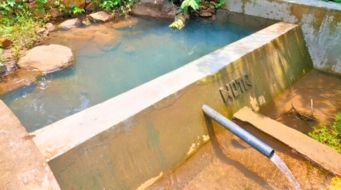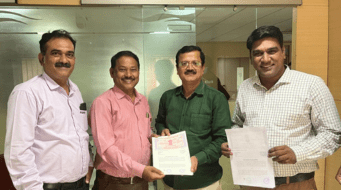~by Subhash Turkewadkar
This blog is based on field visit experiences from Ghoti (Ahmednagar District) and Kotha Jahangir Village (Jalna District) under the project ‘Nature-based Solutions for Sustainable Rural Landscapes and Climate Resilience’ funded by the HSBC Software Development (India) Private Limited.
Embracing Community Empowerment in Rural Development Data Collection
As someone deeply involved in rural development work, I understand the crucial role that data collection plays in understanding the needs, challenges, and aspirations of communities. Traditionally, this task has been left in the hands of external experts, often disregarding the invaluable knowledge and perspectives of the very communities they aim to serve. However, I’ve had the privilege of witnessing a transformative practice in action: participatory data collection through WOTR’s innovative CoDriVE-PD (Community Driven Vulnerability Evaluation – Programme Designer) approach.
This approach breaks away from conventional methods by actively involving communities in the data collection process, recognizing that community members possess valuable knowledge, experiences, and perspectives that can shape tailored interventions to address their specific needs and priorities. In this blog, I want to share my personal experience and delve into the importance and benefits of participatory data collection. I’ll also highlight inspiring case studies that demonstrate the profound impact of the CoDriVE-PD approach on community development and sustainable outcomes.
Emphasizing Community Inclusion: The Significance of Participatory Data Collection
Participatory data collection is a powerful approach that ensures community members are actively involved in all stages of the process. From planning and designing the study to collecting, analyzing, and interpreting the data, community voices are given utmost importance. This inclusive approach acknowledges the invaluable knowledge and perspectives community members possess, ensuring that the collected data accurately reflects their realities and needs.
The following benefits are gained from the approach:
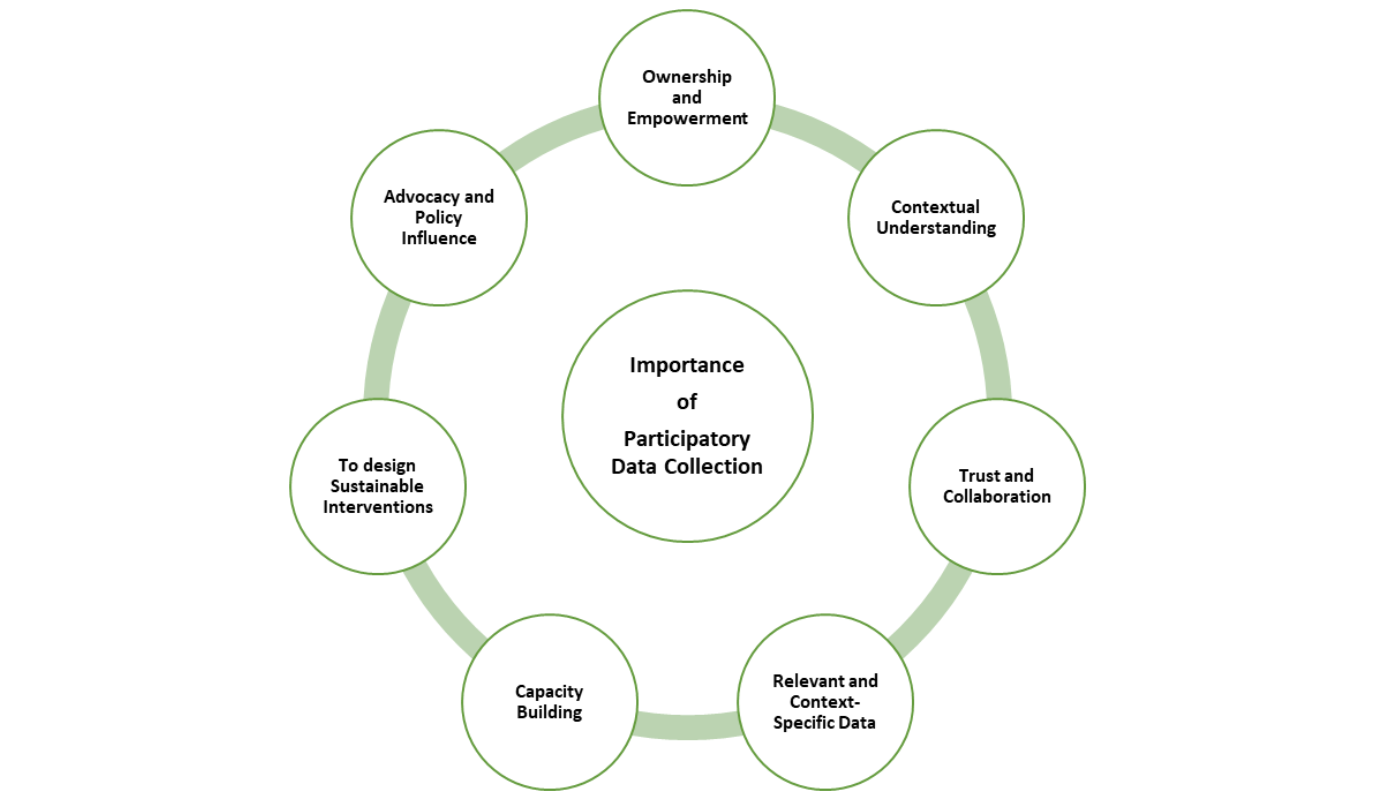
WOTR’s CoDriVE-PD Approach: Empowering Communities for Tailored Interventions
WOTR’s CoDriVE-PD goes beyond conventional evaluation methods by actively involving communities in the data collection process. It recognizes that community members possess valuable knowledge, experiences, and perspectives that can shape tailored interventions to address their specific needs and priorities. By putting the power of data and decision-making into the hands of community members, CoDriVE-PD promotes community ownership, fosters informed decision-making, and paves the way for resilient development outcomes.
This approach encompasses various features that contribute to its significance in participatory data collection. It emphasizes community ownership and participation, ensuring that every community member, including marginalized groups, has a voice and is actively engaged throughout the data collection process. By involving the community from the outset, WOTR establishes a strong foundation for meaningful collaboration and co-creation.
CoDriVE-PD captures the nuanced challenges, aspirations, and priorities of the community through participatory data collection methods such as surveys, interviews, transect walks, and focus group discussions. By understanding the community’s context, cultural practices, and existing strengths, CoDriVE-PD enables the design and implementation of tailored interventions that are more likely to yield desired outcomes and create a lasting impact. CoDriVE-PD also prioritizes informed decision-making by promoting data-driven decision-making at the local level, leading to more effective resource allocation, targeted interventions, and improved project outcomes.
Furthermore, CoDriVE-PD focuses on building capacity and empowering communities. By involving community members in the data collection process, the approach enhances their understanding of development issues, data analysis, and project management. This empowerment contributes to the long-term sustainability of rural development efforts and strengthens the community’s ability to address future challenges independently.
Broadly, CoDriVE-PD does the following:
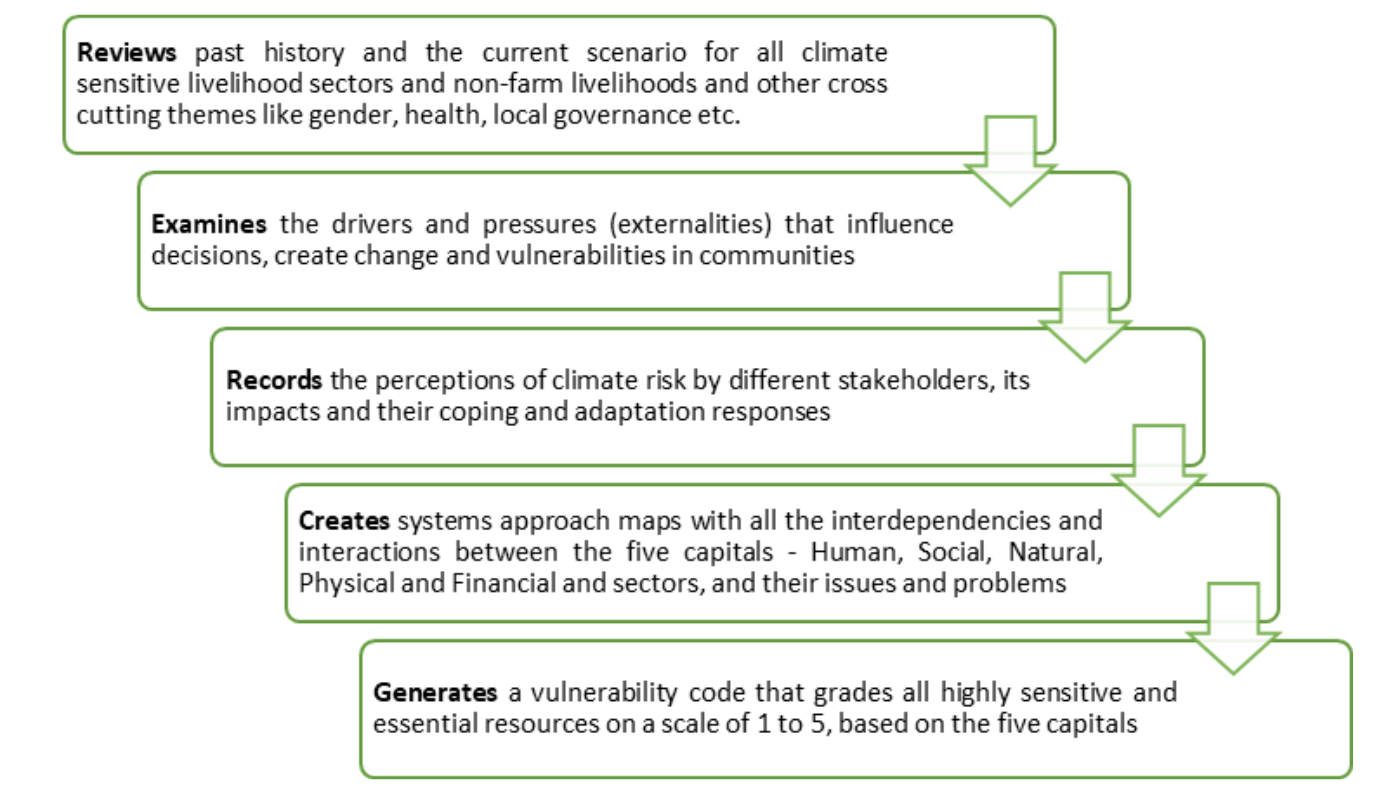
Unlocking Community Potential: The Transformative Power of Engaging Community Voices
Through my firsthand experience, I have come to realize the importance of community engagement in data collection. When communities are actively involved, they gain a sense of ownership and empowerment. They become decision-makers, actively shaping their own development journey. In my interactions with community members, I witnessed their deep contextual understanding and insights into local challenges, resources, and opportunities. This knowledge, combined with the data collected, enables informed decision-making, fostering collaboration for sustainable solutions.
Showcasing the Impact of CoDriVE-PD in Rural Development – Case Studies
Case Study 1:
During my time in Ghoti village in the Ahmednagar district of Maharashtra, I had the opportunity to witness the power of community engagement through WOTR’s CoDriVE-PD approach. The community was actively involved in a participatory data collection and mapping exercise aimed at understanding the social and ecological factors impacting water availability.
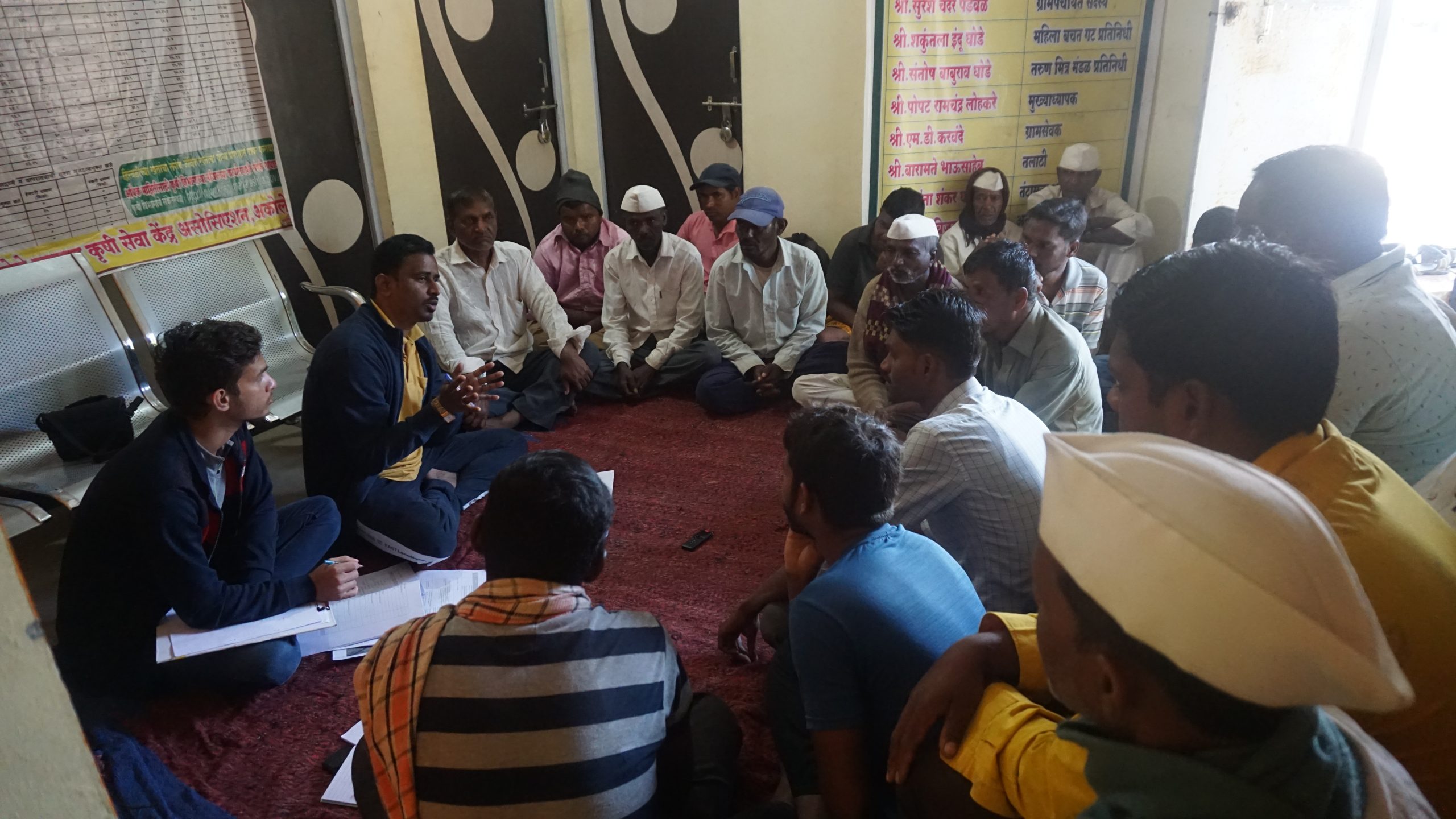
(Photo credit: Yogesh Shinde, WOTR – Pune)
It was truly inspiring to see community members take charge by mapping their surroundings, identifying key water sources, and highlighting factors that affected availability, such as land use practices and deforestation. This valuable knowledge formed the foundation for developing interventions that promoted sustainable water use and conservation in the village. The collaboration between WOTR and the community empowered them to take ownership of their water resources, leading to improved water management practices.
Case Study 2:
Kotha Jahangir Village, Bhokardan block of Jalna: Another remarkable case study took place in Kotha Jahangir village, where I witnessed the power of community engagement through WOTR’s CoDriVE-PD approach. The community actively participated in identifying their main challenges, including water scarcity, low agricultural productivity, and poverty.
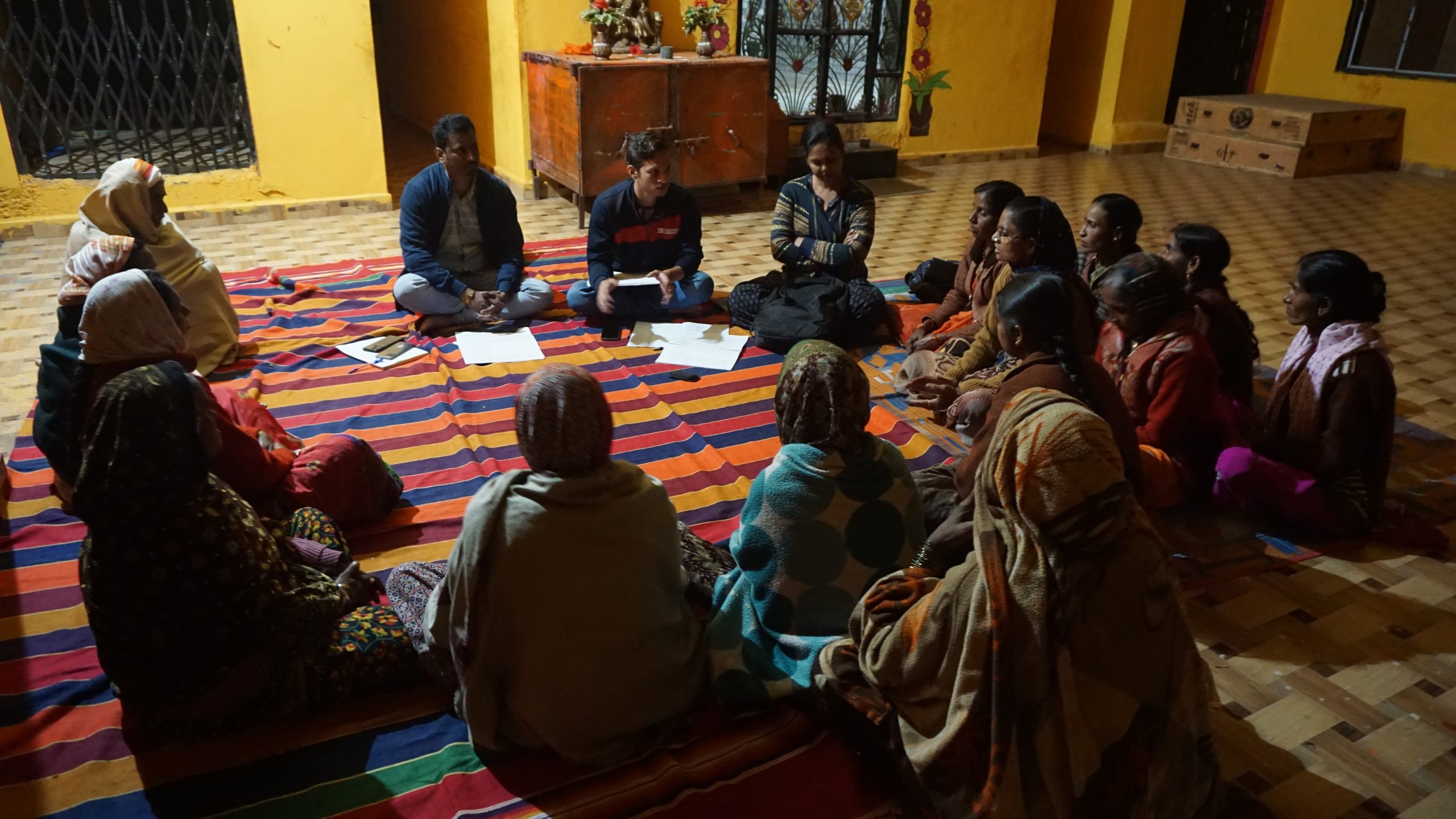
Through participatory methods like Farmer Field Schools (FFS), mapping exercises, and consultations, community members contributed their knowledge and experiences. This collaboration resulted in tailored interventions that addressed their specific needs and priorities. The successful implementation of check dams and the promotion of climate-resilient agricultural practices transformed the village, improving water availability and livelihoods.
Utilizing technology to take CoDriVE-PD to scale
Additionally, to support easy, quick, and large-scale application of this approach, WOTR has developed a web-based software program that facilitates the processing and analysis of key data. This program generates a vulnerability profile and situation-specific adaptive actions to be undertaken, further enhancing the implementation of the CoDriVE-PD approach. By embracing participatory data collection, we can create a more inclusive and impactful approach to development, ensuring that communities are active participants in shaping their own futures.
Conclusion
In conclusion, my personal experience with WOTR’s CoDriVE-PD approach has showcased the power of participatory data collection in empowering rural communities and driving sustainable change. By involving communities as active agents of change, CoDriVE-PD promotes community ownership, fosters collaboration, and paves the way for resilient rural development outcomes.
It amplifies the voices of community members, ensuring their concerns, knowledge, and aspirations shape their own development trajectory. With the help of the CoDriVE-PD approach, WOTR has set a remarkable example of how participatory data collection can transform communities, promote sustainable rural development, and create a brighter future for generations to come.

